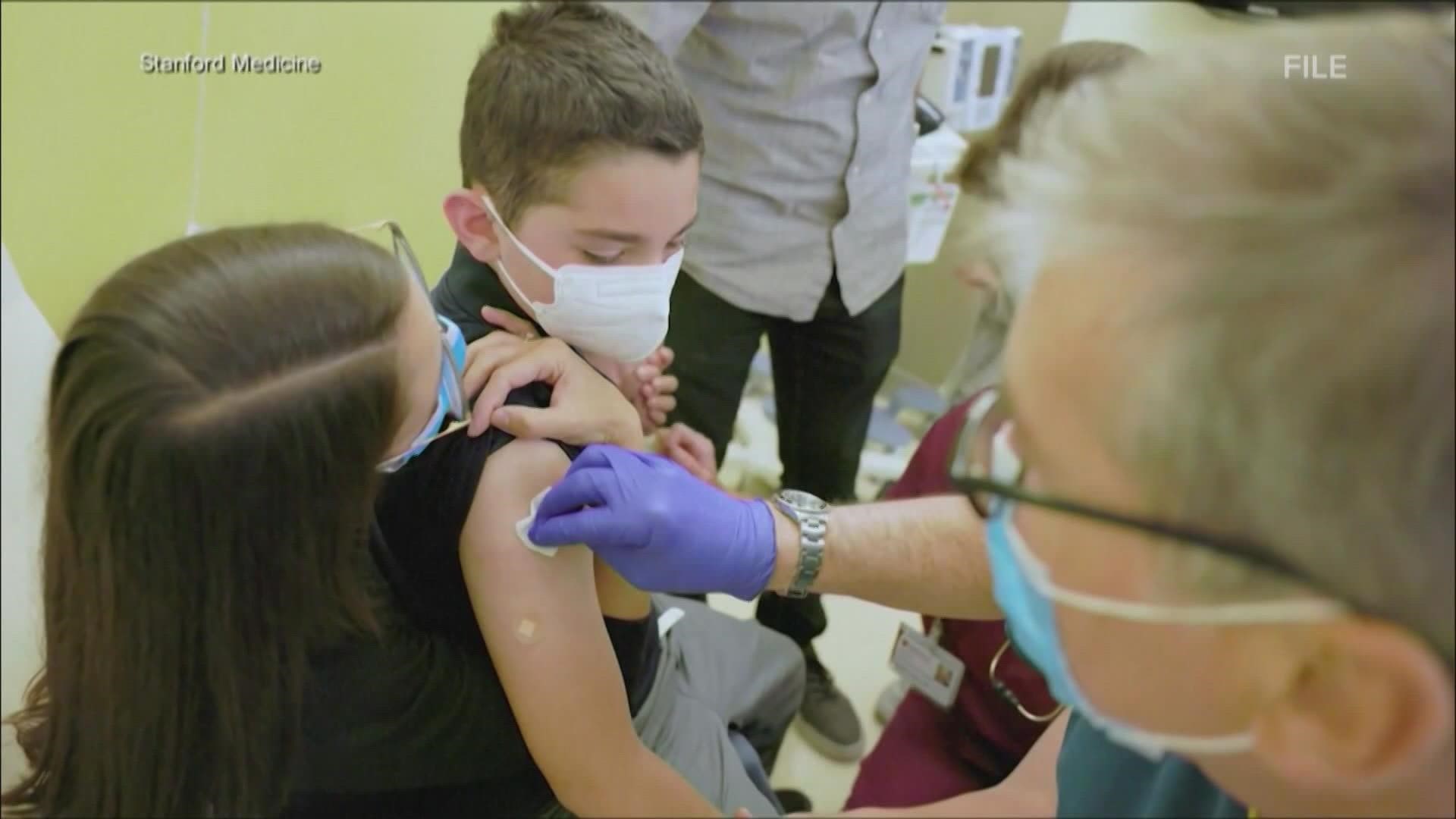On Monday, the U.S. Food and Drug Administration gave full approval to Pfizer's COVID-19 vaccine, a major milestone in the nation's push to get Americans vaccinated against the novel coronavirus.
More than 200 million Pfizer doses have been administered in the U.S. under special emergency provisions — and hundreds of millions more worldwide — since December. In going a step further and granting full approval, the Food and Drug Administration cited months of real-world evidence that serious side effects are extremely rare.
Although Comirnaty, as the vaccine is now officially called, is fully approved for individuals 16 years of age and older, the vaccine also continues to be available under the EUA for kids 12 through 15 years of age, and for the administration of a third dose in certain immunocompromised individuals.
The Moderna vaccine and the Johnson & Johnson single-shot vaccine are still awaiting full approval from the FDA.
However, with the official approval, some questions have arisen about whether children under 12 might be able to get a dose of the vaccine with "off-label prescribing." That's when doctors can prescribe FDA-approved products for other reasons than their original use.
WFAA asked the experts viewer questions about the vaccine approval and what it means for some kids. Here are some of those answers.
IS THE PFIZER COVID VACCINE AVAILABLE TO CHILDREN UNDER 12?
No, according to Frisco pediatrician and Texas Pediatric Society President Dr. Seth Kaplan.
"Technically, with full approval, somebody could use the vaccine off-label in a child under 12, but it's strongly discouraged at this time, even though we know the need is great," Kaplan added.
Normally, doctors would have that option, but FDA's acting Commissioner Dr. Janet Woodcock strongly warned that the Pfizer vaccine should not be used “off-label” for children under 12, a warning echoed by the American Academy of Pediatrics.
Kaplan said he understands that parents are eager to get the vaccine for their kids, "but we really need to wait for the data from the trials for the kids under the age of 12 to come out," Kaplan said. "Especially because those trials are looking at different doses of vaccine, compared to the adult dose."
The FDA also echoed that, saying that it does not currently have complete data on the proper dose for children, other than what is currently covered in the emergency use authorization.
"They are not just small adults," FDA officials said in a Monday teleconference. "We’ve learned that time and time again."
MY 11-YEAR-OLD IS THE SIZE OF A 12-YEAR-OLD. CAN THEY GET THE VACCINE?
Right now, 11-year-olds are not eligible for the Pfizer vaccine under the FDA's approval or the Emergency Use Authorization. Kaplan said it's important to remember that there are different factors that come into play based on a child's age that don’t necessarily have to do with size.
"We really need to see the data before we move forward, no matter how big a child may be," Kaplan said.
WHY WAS IT FULLY APPROVED FOR 16 AND OLDER, BUT NOT FOR 12-15, YET?
Kaplan explained that's likely because the trials for 12-15-year-olds were happening a few months behind those 16 and up, "so it’s going to take a few more months to accumulate all of that," Kaplan explained.
But, Kaplan said, overall, the vaccine still meets the safety and efficacy criteria, and medical experts still strongly recommend the shot for children ages 12-15. So, parents should feel very comfortable getting their children 12 and up vaccinated if they’re not vaccinated, yet.
WHAT IS THE STATUS ON VACCINE TRIALS FOR YOUNGER KIDS?
Currently, there are still trials ongoing, and the agency has to wait for companies to submit the data for those trials so that we have a good safety data set, the FDA said during the teleconference.
Both Pfizer and Moderna have vaccine studies underway in youngsters, and they are using lower doses than those available for people 12 and older.
Pfizer's Bourla said he expects study results from 5- to 11-year-olds by the end of September, but data for those younger than 5 will take a couple of months.
"We certainly want to make sure that we get it right in the children ages 5 through 11 and even in younger children after that," officials said. "We will obviously move swiftly once those data are submitted, but first the trials have to be finished."
Ariel Plasencia, Addie Haney and material from the Associated Press and Associated Press reporter Jonathan Lemire contributed to this report.

